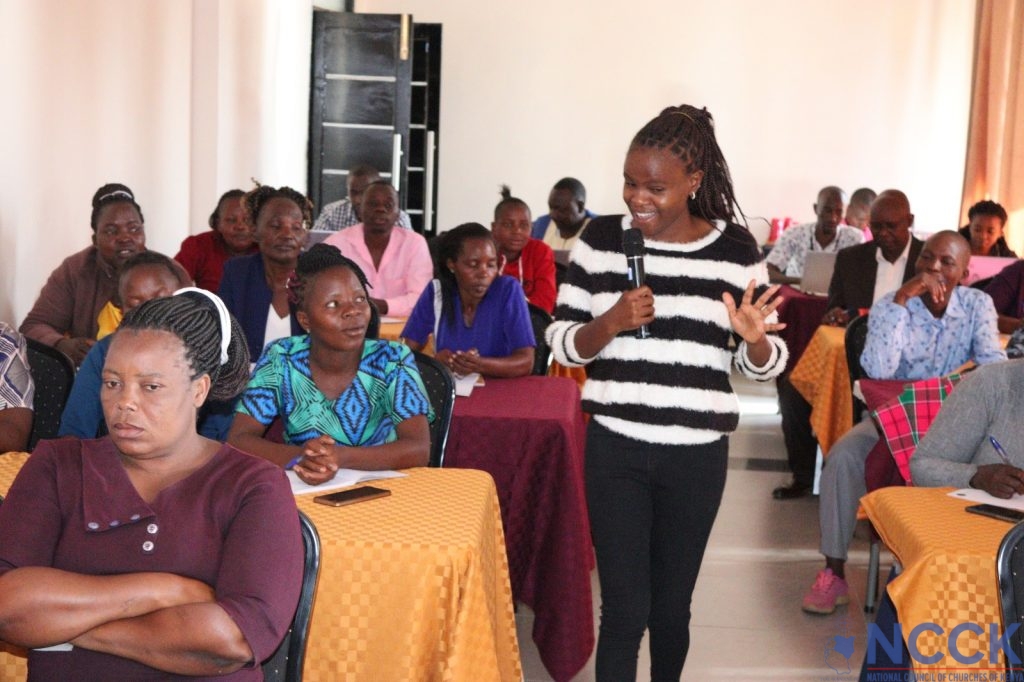NCCK Trains Gender Champions
February 28, 2025

Gender Champions Trained
The NCCK has this week trained 141 gender champions drawn from the ongoing climate change and food security projects in the ongoing endeavours to mainstream gender equality and equity within the work of the Council.
The champions, 105 drawn from the Nature Positive project in Kitui County (80F, 25M) and 36 from the Conservation Agriculture project in Tharaka Nithi (23F, 13M), participated in 5-day training sessions at Limuru and Meru respectively.
The trainings, premised on the Gender Action Learning System (GALS), equipped the gender champions to educate and mobilize their communities to address existing gender inequalities and especially gender based violence (GBV). They will sensitize the project beneficiaries on importance of inclusive decision making in families while rationalizing gender roles in the homes.
“Through collaborating as a team, families can foster a more supportive and equitable environment where everyone plays a part and reaps the rewards,” said Purity Mutunga, a resident of Kalivu in Athi Ward, Kitui County.
On his part, James Martin of Gatunga Ward, Tharaka Nithi, learned a lesson he is yearning to share with other men in his community. “I’ve learnt to have peace and to be one with my wife in the home, and we work together to build a family and business, and I also learnt that a wife is important in the home. Both of us need one another,” he expressed, further pointing out that “having a violent relationship will put you in trouble with the law”.
The champions learnt that at its heart, gender inclusivity entails effective collaboration between men and women, as was summarized by Brian Mutia, a resident of Kilawa in Kitui County, when he said: “Throughout the training we discovered that when a husband and wife collaborate and make decisions together, they cultivate mutual respect, understanding, and trust. This teamwork creates a more balanced and supportive home, minimizing conflicts and encouraging harmony. In this kind of environment, problems such as gender-based violence (GBV) can be greatly diminished, leading to a safer and more equitable society for all.”
The two projects that organized the trainings are supported by the Canadian Food Grains Bank (CFGB) through the United Church of Canada (UCC).
















